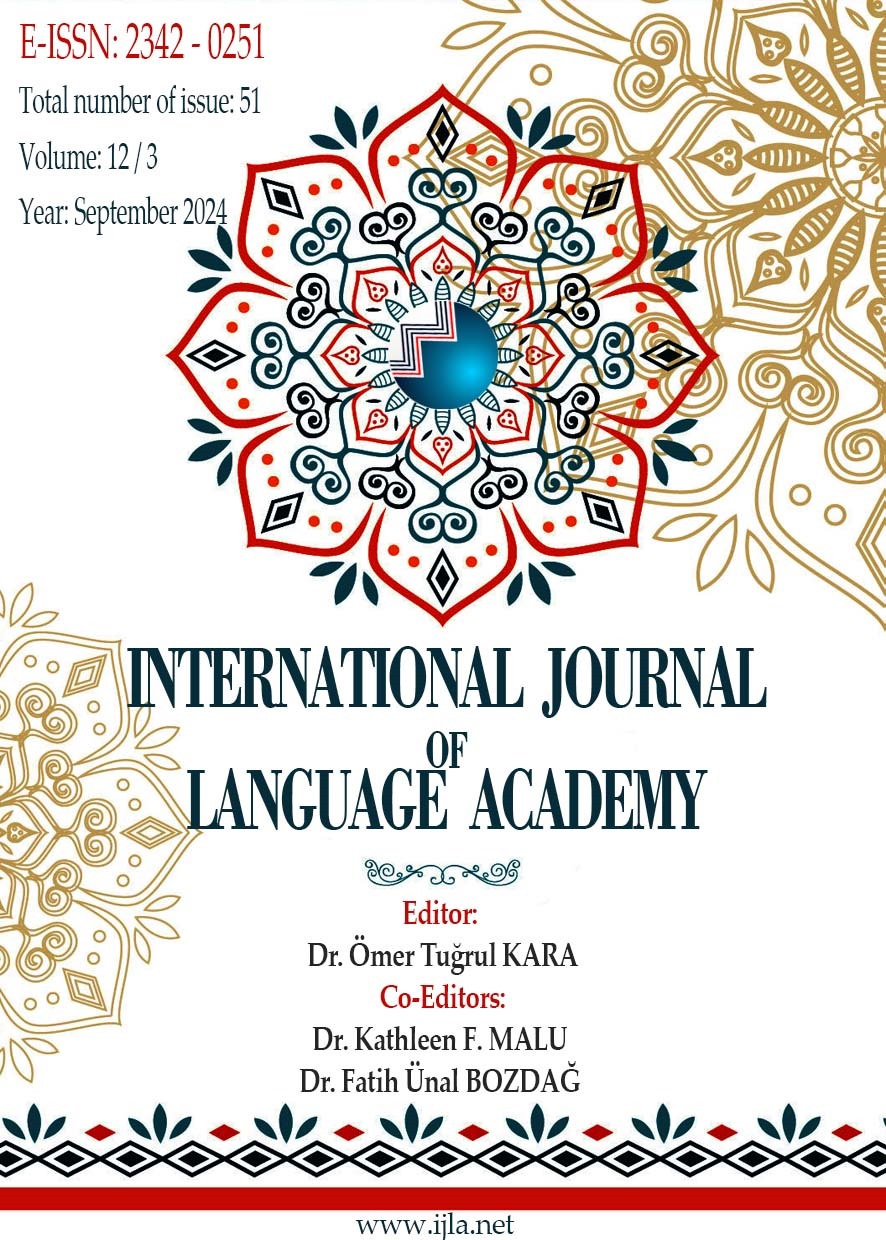Author :
Abstract
Milletlerin hayatında değişim için gerekli olan bazı anlar vardır. Hroch ( 2011)’un millet oluşturma üzerine kurduğu üç evreden B evresi, bu anı milli bilincin uyanması veya milli bilinci güdüleyen olay olarak ifade etmektedir. İzmir’in işgali de Türk milleti için Millî Mücadele süreci ni tetikleyen ve Türk milletinin aralıklı mücadelesini güçlendiren bir dönüm noktası olarak kabul edilir. İşgal, özellikle yerli Rumların gösterdikleri coşku ve destekle başlar; Yunan bayraklarıyla çocukların sahilleri ve sevinç gösterileriyle karşılanır. Rumların işgalci Yunan ordusuna yardım etmesi, çeşitli işkenceler yapması ve Türkleri güdüleyen bir olaydır. Romanlarda da bu durumun yapısı kurmaca içinde konuya dâhil edilmiştir. Özellikle Millî Mücadele’yi konu edinen romanlar bu zulmün Türk milletini n asıl etkilediğini ele almışlardır. Tarihi gerçeklikler ve karakter betimlemeleri üzerinden Hasan Tahsin’in ilk kurşunu sıkması ve bazı propagandist söylemlerin eserlerde yer bulduğu görülmektedir. Rumların psikolojik olarak da bir dönüşüm gösterip bir şımarıklık hâlinde hareketler sergilemeleri Yunan ordusunun desteği sayesinde olmuştur. Millî Mücadele’yi konu edinen romanlarda bu süreç; işgalin millî bilinç ve kimlik üzerinde yarattığı etkiler şeklinde cereyan etmektedir. Türk milletinin birleşmesine ve millî direnişin güçlenmesine önemli bir katkı sağlamaktadır. Rumların coşkusu ve taşkınlıkları, Türklerin yaşadığı şehirdeki sosyal ve ekonomik dengeleri bozmuş. Rum mahallelerinde sevinç ve coşku, Türk bölgelerinde ise korku ve hüzün hâkim olmuştur. Çalışmamız Millî Mücadele’yi konu edinen romanlardaki İzmir’in İşgali sırasında Rumların nasıl bir tavır gösterdiğini ele almaktadır.
Keywords
Abstract
There are certain moments in the lives of nations that are necessary for change. In Hroch’s three-stage model for the formation of nations, Phase B expresses this moment as the awakening of national consciousness or the event that stimulates national consciousness. For the Turkish nation, the occupation of Izmir is considered a turning point, affecting the process of the War of Independence and reinforcing the intermittent struggle of the Turkish nation. The occupation begins with enthusiasm and support demostrated by the local Greeks in particular. It is welcomed with Greek flags and displays of joy by children on the beaches. The Greeks’ support for the Greek army and acts of torture are the facts that stimulate the Turks. This situation is also included in the narrative structure of novels. Especially novels dealing with the War of Independence address how this oppression affects the Turkish nation. Through historical realities and character depictions, it is seen that Hasan Tahsin's firing of the first shot and some propagandist rhetoric take place in the works. It is due to the support of the Greek army that Greeks transform psychologically and exhibit arrogant behaviours. In the novels dealing with the War of Independence, this process is depicted as the effects of the occupation on national consciousness and identity. It contributes significantly to the unification of the Turkish nation and the strengthening of national resistance. The enthusiasm and excesses of the Greeks disrupt the social and economic balance in the city where Turks live. The Greek neighborhoods are filled with joy and excitement, whereas the atmosphere of fear and sorrow prevails in the Turkish districts. Our study examines the attitudes of the Greeks during the occupation of Izmir in the novels about the War of Independence.





